Dietary management after Mitral Valve Replacement
Mahalakshmi1, Sheeba Sherin2
1Senior Dietitian, Kauvery Heartcity, Trichy, India.
2Dietitian, Kauvery Heartcity, Trichy, India.
Correspondence: dietary.khc@kauveryhospitals.com
Abstract
Mitral Valve Replacement is a surgical procedure. Mitral valve repair and mitral valve replacement are types of surgery to fix or replace a leaky or stiff mitral valve in the heart. The mitral valve is between the left heart chambers (left atrium and left ventricle). This procedure restores the efficient emptying of the blood from left atrium to left ventricle, thus improving the patient,s quality of life, and reducing mortality from the disease to 1-3%. If the person continues with the problem, it may lead to death. Depending on the patient’s clinical status either a biological or mechanical valve can be implanted. After replacement, the patient must take Acitrom tablet. Acitrom is a Vit K antagonist blood-thinning medication . A vitamin K-restricted diet is prescribed to the patient
Mitral Valve Replacement
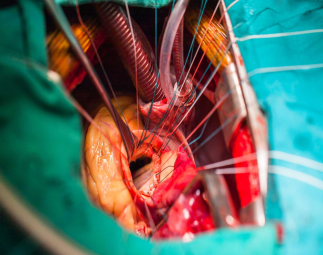
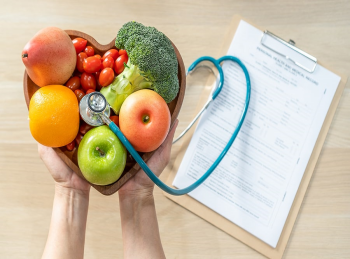
Complication
Certain factors increase the risk of complications, like:
- Bleeding.
- Irregular heart rhythms.
- Blood clots leading to stroke or heart attack
- Chronic illness
- Lung problems
- Increased age
- Being obese
- Being a smoker
- Certain infections that affect the heart
Case Presentation
A 49-year-old female was admitted to the hospital for surgery. She was known to have RHD (rheumatic heart disease)- severe Mitral Valve Stenosis.
Past Medical History
The patient was known to have T2DM, HTN,Pulmonary edema was treated.
On examination, the patient was conscious with a febrile pulse rate of 90 / minute, and the blood glucose range was normal.
She was admitted for mitral valve replacement (MVR), which is a surgical procedure.
Nutritional Assessment
Name: XXX
Gender: FEMALE
Age: 49 YRS
Anthropometric Measurements
Height: 159 cm
Weight: 72 kgs
BMI:28kg/m2 (Over weight)
IBW: 59 kgs.
Diet History: Non Vegetarian
Food Allergy: Chicken
Appetite: Normal
GI Symptoms: Nil
Clinical signs symptoms: Nil
Weight changes: Nil
During the hospital stay, nutrition management was planned according to the patient’s health condition. Followed by a 24-hour dietary recall. It shows that she consumed a low-fat regular diet, which contains 1500 kcal, 64g of protein, and 25 g of fat per day. This diet was given by the hospital under dietary guidance.
Investigations:
Biochemical Value – 9 days
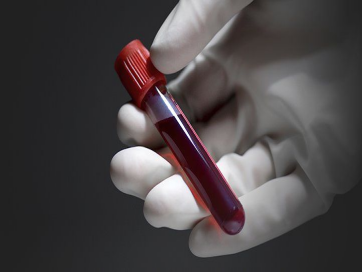
Date |
Haemoglobin |
Urea |
Creatinine |
Sodium |
Pottasium |
Day-1 |
11.8 | – | – | – | – |
Day-2 |
11.2 | 34.2 | 1.1 | – | 3.6 |
Day-3 |
11.3 | 46.0 | 1.2 | 144.3 | 4.0 |
Day-4 |
10.9 | 56.1 | 1.5 | 141.9 | 3.3 |
Day-5 |
10.7 | 63.3 | 1.3 | 140.7 | – |
Day-6 |
11.1 | 61.4 | 1.3 | 138.1 | – |
Day-7 |
11.1 | 59.4 | 1.2 | 135.6 | – |
Day-8 |
11.8 | 49.2 | 1.1 | 130.1 | 3.0 |
Day-9 |
12.0 | 45.1 | 0.9 | 129.6 | 2.9 |
Dietary Recall – Post Surgery
| Day 1 | Clear Liquid Diet |
| Day 2 | Normal Liquid Diet |
| Day 3 | Semi Solid Diet |
| Day 4 | Soft Diet |
Clear liquid diet
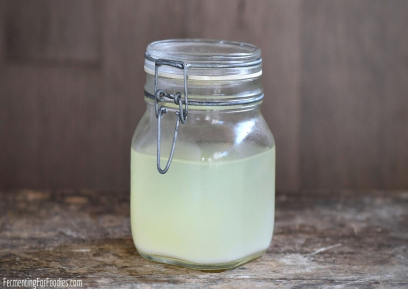
Time |
Menu |
| 10.00 am | Wheywater |
| 12.00 pm | Mosambijuice |
| 2.00 pm | Wheywater |
| 4.00 pm | Mosambijuice |
| 6.00 pm | Wheywater |
| 8.00 pm | Dhalsoup(clear) |
| 10.00 pm | Wheywater |
Normal liquid diet
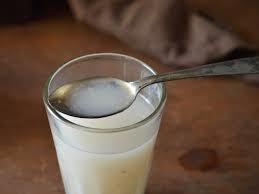
Time |
Liquiddiet |
| 6.00 am | Formulafeeding |
| 8.00 am | Uradkanji |
| 10.00 am | Formulafeeding |
| 12.00 pm | Vegsoup |
| 2.00 pm | Healthmixkanji |
| 4.00 pm | Formulafeeding |
| 6.00 pm | Dhalwater |
| 8.00 pm | Ricekanji |
| 10.00 pm | Formulafeeding |
Semi solid diet
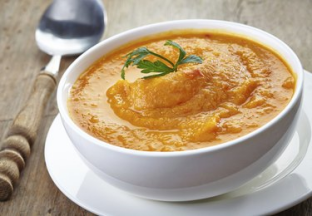
Time |
Fullfluiddiet |
| 6.00 am | Proteinsupplement |
| 8.00 am | Sathumavukanji |
| 10.00 am | Fruit+proteinsupplement |
| 1.00 pm | Rasamrice+vegkootu+vegporiyal+2eggwhite |
| 4.00 pm | Doubleboiledsundal |
| 6.00 pm | Proteinsupplement |
| 7.45 pm | Idly(mashed)+sambar+chutney |
| 9 pm | Proteinsupplement |
Soft diet
Time |
Semisoliddiet |
| 6.00 am | Proteinsupplement |
| 8.00 am | Wheatravauppuma+idly+sambar+chutney |
| 10.00 am | Fruit+proteinsupplement |
| 1.00 pm | Doubleboiledrice+vegkootu+vegporiyal+2eggwhite |
| 4.00 pm | Sundal |
| 6.00 pm | Proteinsupplement |
| 8.00 pm | Ragiidiyappam+sambar+chutney |
| 10.00 pm | Proteinsupplement |
Nutritional requirements
Diet |
Calorie(kcal) |
Protein (g) |
Fat (g) |
| Clearliquiddiet(7feeds/2hours) | 500 | 13.5 | 2.6 |
| Liquiddiet(9feeds/2hours) | 1477 | 65 | 24 |
| Semisoliddiet+proteinsupplement | 1713 | 74 | 25 |
| Softdiet+proteinsupplement | 1900 | 84 | 29 |
Principle of Diet
- Adequate calorie
- High protein
- Iron rich
- Moderate carb
- Low fat
- Low vit k rich
- Vitamins Minerals – as per RDA
Nutritional requirements post surgery
Height: 159cm
Weight: 70kgs
BMI: 27kg/m
IBW: 59kgs
Weight Changes 2kgs
| Calorie | 1900 Kcal/27.2/kg |
| Protein | 84 g/1.2g/kg |
| Fat | 25-30 g/0.5g/kg |
Dietary guidelines
- Ideal portion breakdown:The ideal daily diet should include 4 servings of whole grains, 5 servings of vegetables, and 2 servings of fruits. However, this may very be depending on the actual energy requirements of the patient.
- Sugary foods:Try to avoid sugary foods completely. These may make you gain weight.
- Salty foods:Limit your intake of salty foods. Prepare meals with minimal salt as it will help prevent water retention and keep blood pressure normal.
- Water consumption:Intake of water as it helps maintain proper fluid balance in the body.
- Controlled fat consumption:Limit your consumption of processed fats. Instead, switch to healthy fats derived from nuts, avocados, seeds, and fish oil.
- Fish consumption:Different variety of fish such as salmon, sardines, and mackerel are a rich sources of omega-3 fatty acids. These fats help protect the heart and will allow your body to heal faster than usual.
- Dairy:Switch to low-fat dairy and include it in your everyday diet.
- Protein-rich foods:Include meat or its protein-rich alternatives such as egg white, nuts, chicken, pulses and legumes in your diet.
- Whole grain benefits:Whole grain food items such as wheat, brown rice, quinoa, couscous, barley, and rice varieties help improve your energy levels and are considered good for your heart. Make sure to include a couple of servings of whole grain in your daily diet.
- Millet: Millet is rich in dietary fiber, both soluble and insoluble. The insoluble fiber in millet is known as a prebiotic, which means itsupports good bacteria in your digestive system. This type of fiber is also preventing constipation.
- Vitamin K-rich foods:It is important to consume Vitamin-K-rich foods. But these should be consumed at a limit after mitral valve replacement surgery to prevent the formation of blood clots in the heart. Consult your dietitian about vitamin K-rich food items that you should completely avoid after the surgery.
Following a healthy lifestyle is important to heart health before and after mitral valve surgery. A healthy lifestyle includes:
- No smoking.
- Avoid drinking alcohol
- Getting regular exercise
- Eating a healthy diet
- Managing stress
Acitrom Diet

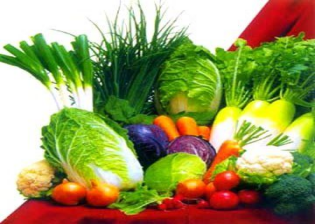
Generic name of Acitrom
- Acenocoumarol is a blood thinner agent prescribed to treat or prevent the formation of blood clots or thrombus in the blood vessels helps by dissolving the blood clots and reducing the complication of thromboembolic disorders.
- Acitrom tablet primarily used to prevent and treat various types of thromboembolic diseases (blood clots inside blood vessels) including deep vein thrombosis (blood clots in leg veins) and pulmonary embolism (blood clots in the lung).
- Acitrom Tablet is an oral anticoagulant that helps prevent harmful blood clots in the legs, lungs, brain, and heart. It is used for deep vein thrombosis, pulmonary embolism, and stroke prevention.
Side effects
unusual bleeding from the gums,
heavy bleeding from cuts or wounds,
unexplained bruising or nosebleeds,
heavy periods, abdominal pain,
blood vomiting, bloody or black tarry stools,
blood in the urine, backache, dizziness
Vit K Rich foods
Green leafy
Green leafy vegetables like, Cabbage Cauliflower,Broccoli.
Beans varieties .
Peas
Olive oil
Egg yolk
Turnips
Conclusion A conditional diet was prescribed and monitored for two weeks until discharge. Post discharge diet advice was given.
References
- Lawrie GM. Structure, function, and dynamics of the mitral annulus: importance in mitral valve repair for myxamatous mitral valve disease. Methodist Debakey Cardiovasc J. 2010;6(1):8-14.
- Chiu P, et al. Would evolving recommendations for mechanical mitral valve replacement further raise the bar for successful mitral valve repair? Eur J Cardiothorac Surg. 2018;54(4):622-6.
- Vassileva CM, et al. Long-term survival of patients undergoing mitral valve repair and replacement: a longitudinal analysis of Medicare fee-forservice beneficiaries. Circulation 2013;127:1870-6.
- Husted S, et al. Non-vitamin K antagonist oral anticoagulants (NOACs): no longer new or novel. Thromb Haemost. 2014;111:781-2.

Ms. Mahalakshmi M
Senior Dietitian

Ms. Sheeba Sherin C
Dietitian
